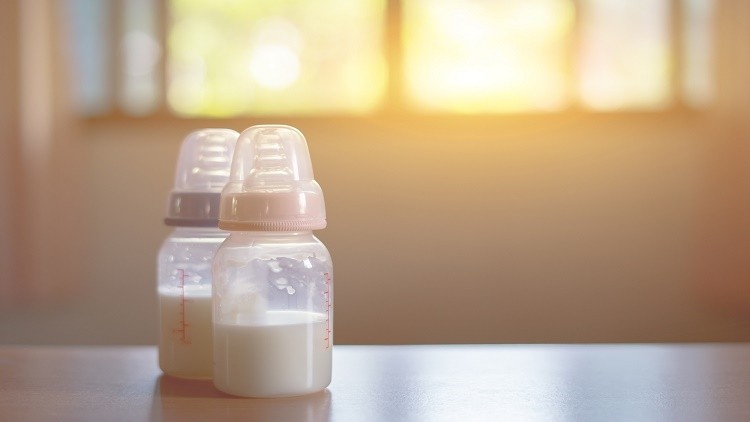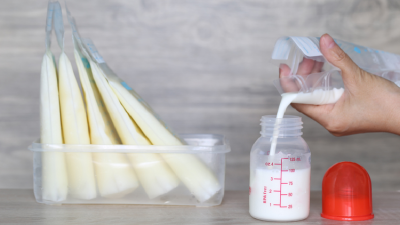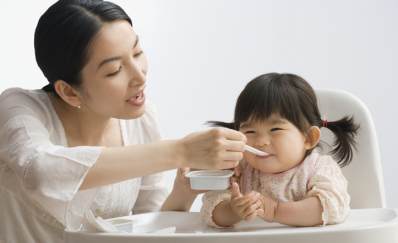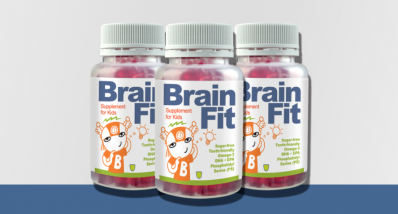Vitamin A supplementation increases breast milk retinol levels – China study

Findings of the trial – conducted by researchers from Nanjing Medical University – were published in Nutrients.
Vitamin A is important for maintaining normal vision, gene expression, growth and immune function and can only be obtained via foods or supplementation, since it cannot be synthesised by the body.
Previous studies have shown that infants fed with vitamin A-deficient breast milk were susceptible to vitamin A deficiency, resulting in xerophthalmia – an abnormal dry eye condition, anaemia, weakened iron metabolism, growth retardation, increased infectious morbidity, and suppressed immune response etc.
There were 245 pairs of mothers and babies who completed the parallel-group, single-blind, randomised, placebo-controlled trial. The trial is single-blind in that the participants were blinded to their group assignment, but the trial personnel were not.
The intervention group took a capsule containing 1800 IU of vitamin A in the form of retinol and 600 IU of vitamin D, while the control group took the placebo daily for two months.
Vitamin D was also given to the intervention group because the common form of vitamin A supplementation in China is combined with vitamin D.
On the other hand, vitamin A comes in the form of either retinol or β-carotene. In this study, retinol was used, as vitamin A in the form of β-carotene did not improve the serum retinol concentration in lactating mothers according to a previous study.
To measure the results, the researchers measured the retinol concentration in the mothers’ blood serum and breast milk using liquid chromatography-tandem mass spectrometry. They also recorded the mothers’ vitamin A dietary intake using instant photography.
Retinol in mothers’ blood serum
The supplementation of vitamin A had significantly increased blood serum retinol concentration in the intervention group, while no change was seen in the placebo group.
Maternal serum retinol concentrations increased in the supplementation group with no change in the control group.
In the intervention group, serum retinol concentration increased from 1.65 ± 0.41 μmol/L to 1.81 ± 0.44 μmol/L, with a p-value of less than 0.05.
In contrast, retinol concentration in the placebo group stayed constant, starting with 1.66 ± 0.40 μmol/L and ended with 1.66 ± 0.41 μmol/L by the end of the trial.
In addition, the rate of marginal vitamin A deficiency also decreased significantly in the intervention group – from six per cent to 0.9 per cent, while the rate increased from 4.7 per cent to 8.6 per cent in the placebo group.
Marginal vitamin A deficiency is defined as having a blood serum retinol concentration of less than 1.05 μmol/L, while retinol concentration of less than 0.7 μmol/L is considered vitamin A deficient.
Retinol in breastmilk
The concentration of retinol will decrease in breastmilk as time goes by, but the study found that vitamin A supplementation has helped to slowdown the decrease.
In the intervention group, breast milk retinol concentration decreased from 1.56 ± 0.70 μmol/L to 1.02 ± 0.37 μmol/L, while the drop was greater in the placebo group as retinol concentration decreased from 1.56 ± 0.56 μmol/L to 0.85 ± 0.34 μmol/L.
Effects on infant health
Although vitamin A supplementation had increased retinol concentration in breast milk, this did not reduce the infants’ risk of respiratory tract infection, diarrhoea, eczema, as well as fever, compared to the placebo group.
In fact, the incidence of fever was higher in infants from the intervention group at 8.5 per cent, while that of the placebo group was lower at 5.5 per cent.
The incidence of eczema was also higher in the intervention group at 12 per cent versus 9.3 per cent in the placebo group.
“Although vitamin A enhances immunity, the immunity of infants within six months after birth is mainly guaranteed by the mother through breast milk.
“Colostrum is rich in immune factors, and the prebiotics in breast milk are also conducive to the growth of intestinal probiotics. This may be one of the reasons why vitamin A intervention does not affect the health of infants,” the researchers explained.
They added that the mothers might also be lacking in other micronutrients, which was why vitamin A supplementation alone would not improve infants’ health.
“In addition, the coexistence of multiple micronutrient deficiencies in breast milk may be another reason…Almost all the water-soluble vitamins needed by infants come from breast milk. If mothers lack these nutrients, the related deficiency symptoms quickly appear in infants,” the researchers said.
Due to ethical constraints, the researchers did not obtain blood from infants to determine their serum retinol concentrations.
However, they said that the results were sufficient to show that the mothers’ daily supplementation of vitamin A was helpful to improve maternal vitamin A status.
“Daily oral low-dose vitamin A supplementation is helpful in improving maternal vitamin A status, despite having no effect on infant health status through breast milk,” the researchers concluded.
Source: Nutrients
Impact of Maternal Daily Oral Low-Dose Vitamin A Supplementation on the Mother-Infant Pair: A Randomised Placebo-Controlled Trial in China
https://doi.org/10.3390/nu13072370
Authors: Wang et al


















